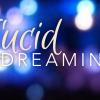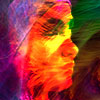Lucid Dreaming

Dreaming is a mysterious phenomenon. Being consciously aware of our dreams—and even changing how they unfold—is even more mysterious. This practice is called lucid dreaming, and with more scholarly attention, it may no longer be a mystery at all.
Researchers have found early references to lucid dreaming in ancient Greece, Hinduism and Buddhism. It didn't become an established phenomenon until the advent of modern psychiatry. And even then, nearly 60 years would pass before neuroscientists started taking lucid dreaming more seriously. We now know that lucid dreams occur exclusively during REM sleep, but we are still uncertain which brain regions and behaviors can cause them.
Despite this, resources for lucid dreaming are spread across the internet. This exercise mostly involves physical awareness during waking hours and mental concentration just before bed. Ideally, with enough concentration, the mind will trigger a dream with a strong narrative. And with enough physical awareness, the dreamer will stay tethered to the dream. Through repetition and self-observation, the dreamer will become more experienced at not only triggering lucid dreams but staying in them for longer periods.
Dreamers can use soothing music as a lucid dreaming trigger. Binaural beats are designed specifically to induce certain brain rhythms that can promote either deep sleep or concentration. While no evidence has yet suggested that binaural beats can cause lucid dreaming, they can still alleviate the stress of trying to trigger a lucid dream. Dream researcher Ryan Hurd says that the pressure to lucid dream is counterproductive to sleep, as it prevents you from getting rest altogether. He suggests listening to binaural beats, not necessarily as a trigger, but rather as a sleep aid. In fact, the more calm you feel while listening to binaural beats, the more likely you are to trigger a lucid dream anyway.
To get started with binaural beats, download our free mp3s and check out our YouTube affiliates. For full entrancement, wear SleepPhones® headphones—the world's most comfortable headphones. With flat, padded speakers tucked inside a soft, pliable headband, SleepPhones® headphones let you lay against your pillow with ease. Focus on the music without the pain in your ears, as you would with other devices. They're the perfect headphones for getting immersed in your own unique dreaming experience.
For more about lucid dreaming, read the articles below.
-
Lucid Dreaming for Beginners

Not sure how to start lucid dreaming? Here we discuss what it feels like to have a lucid dream and what you need to get started.
-
Music-Assisted Lucid Dreaming

Sleep-optimized audio input, such as binaural beats, can help promote lucid dreaming. Discover techniques, tips and tricks on how to induce a lucid dream.
-
Lucid Dreaming Music: How to Induce Lucid Dreams With Your Favorite Songs

While no music is made specifically for lucid dreaming, just about any song can be a trigger. Follow these instructions for using your favorite tunes to enter a lucid dream.
-
Dream On: 5 YouTube Channels to Help You Lucid Dream

Want to hear from lucid dreaming experts? Find out how these 5 YouTube channels can help you on your journey.
-
How to Program Your Mind While You Sleep to Experience Profound Life Changes

Looking to make positive changes in your life? Programming your subconscious mind is worth a try. In this guest post, athlete and spiritual-wellness coach Matt Belair discusses the importance of practicing awareness—even as you sleep. Use these techniques to help relax your mind and body before you go to bed.
-
How to Have Lucid Dreams Tonight

Unlock the power of your subconscious mind and tap into the world of lucid dreaming, where you can control and manipulate your dreams with clarity and precision. Lucid dreaming offers a wide range of benefits, from improving motor skills and enhancing creativity to increasing self-awareness and promoting emotional healing. With the right techniques and tools, you can induce lucid dreams and explore the vast expanse of your own subconscious.
